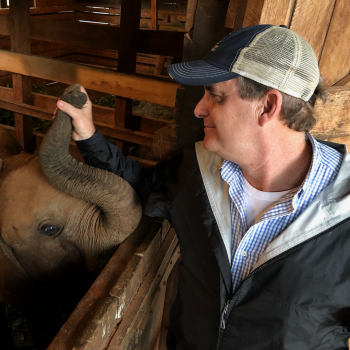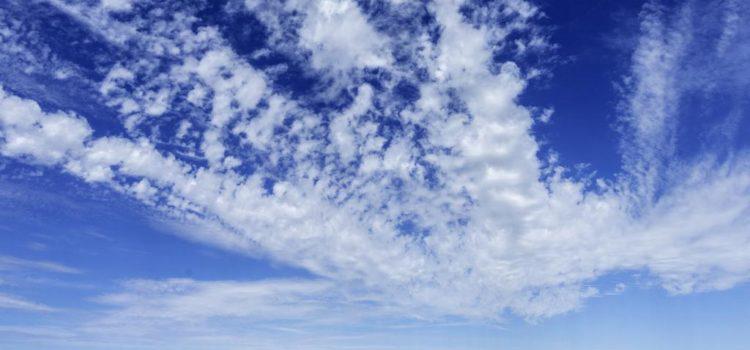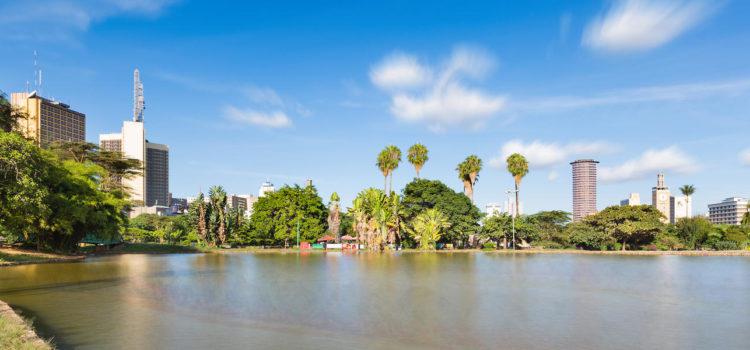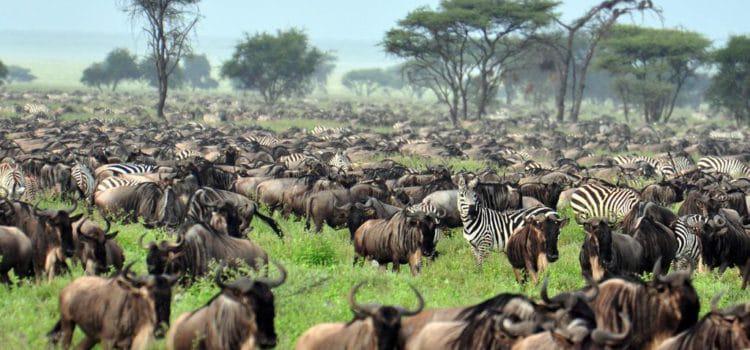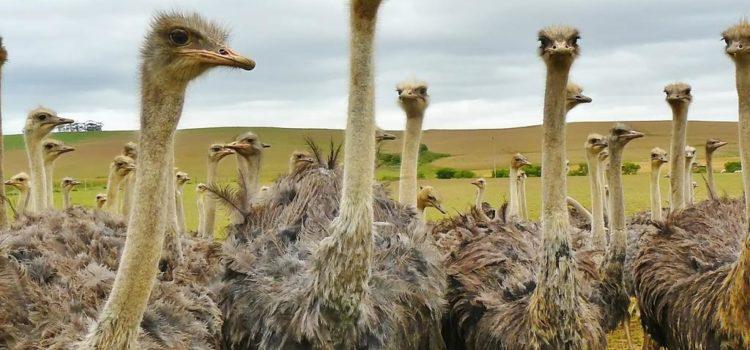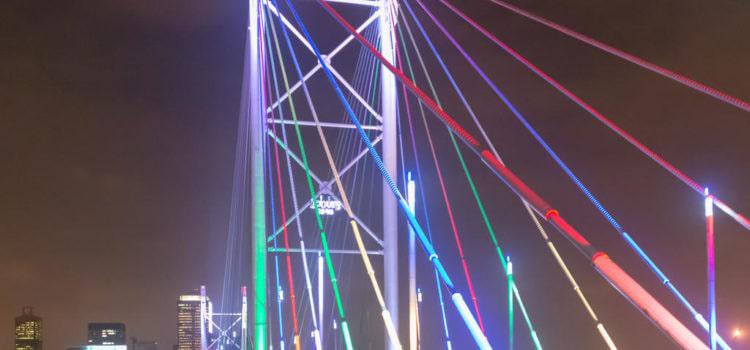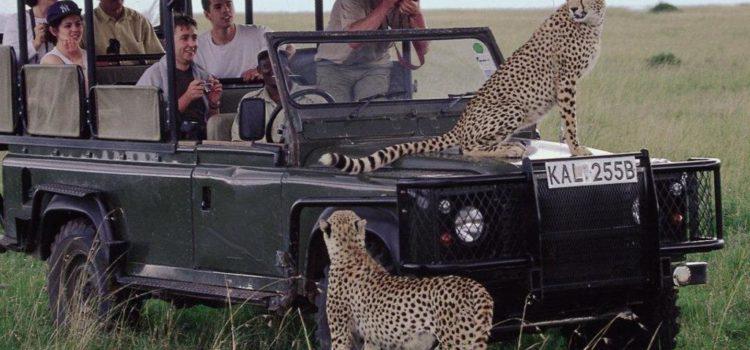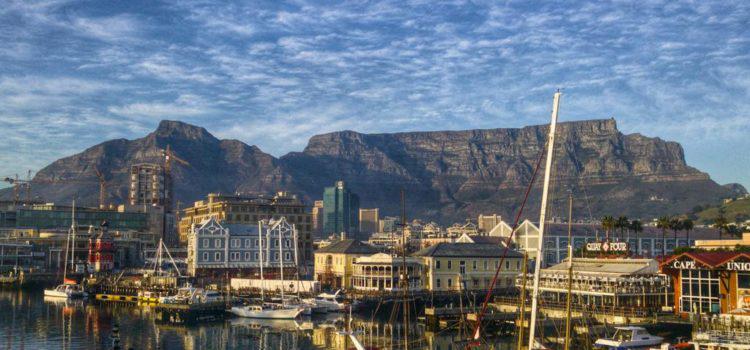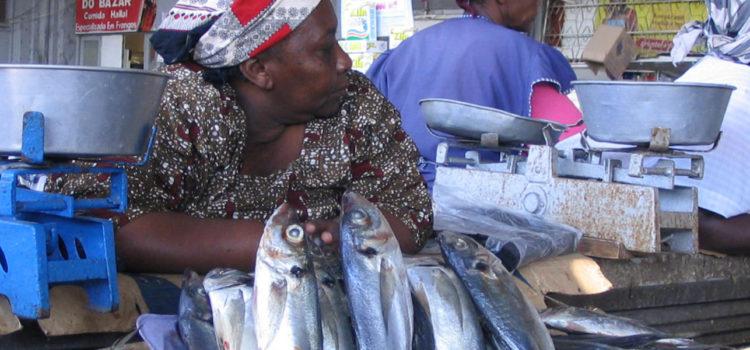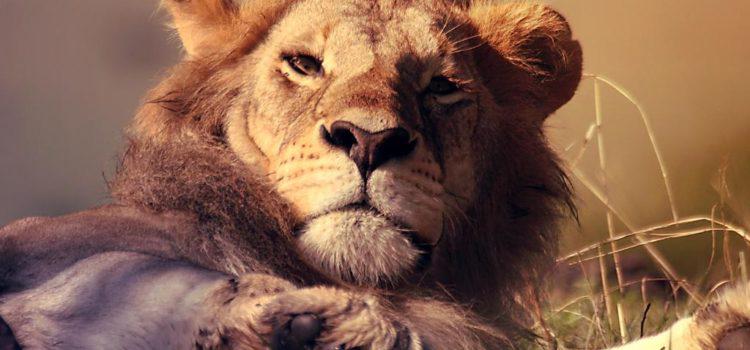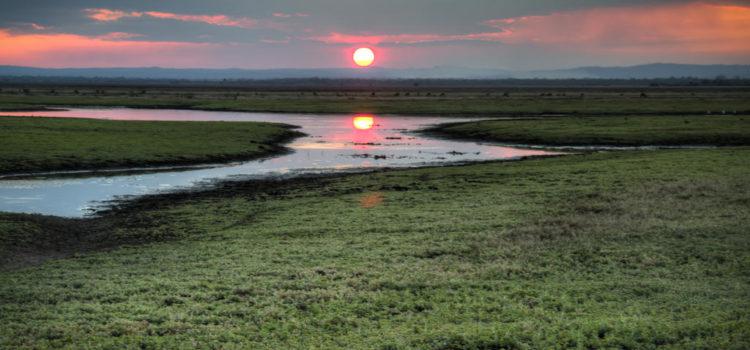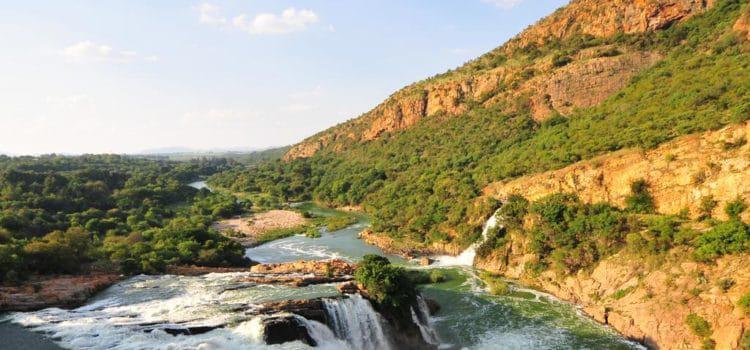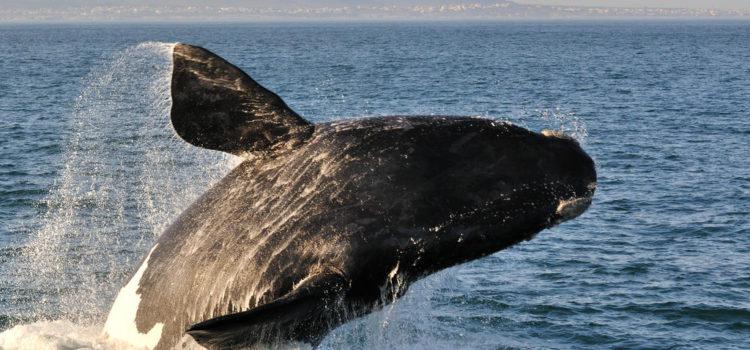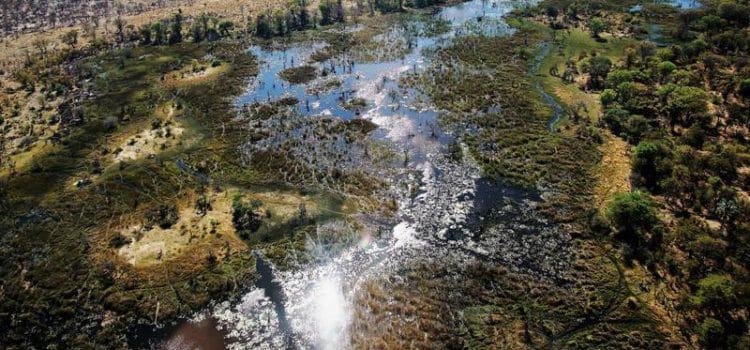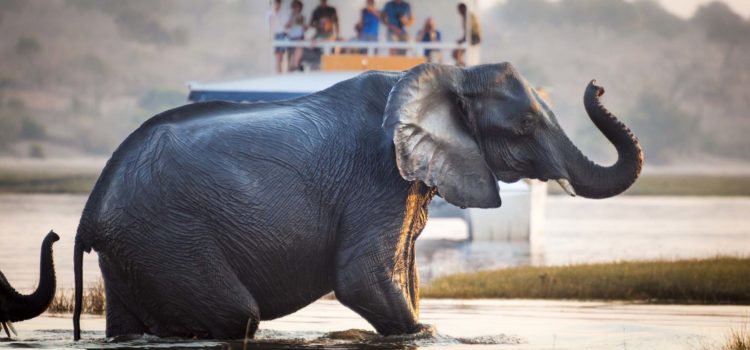Summary
Map
Full Day by Day Itinerary
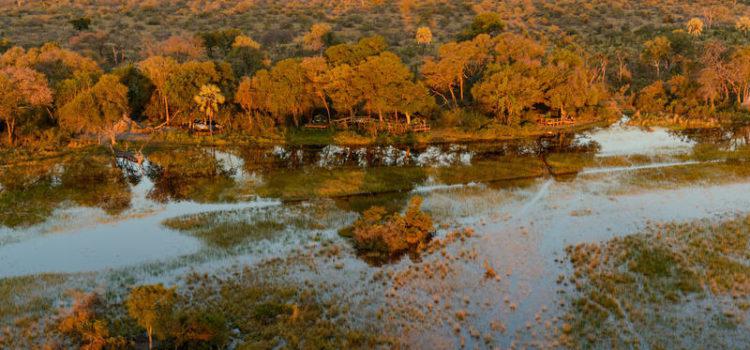
Day 1
You will arrive into the Johannesburg Airport and then connect onto a South African Airways flight to Maun, Botswana. There you will take a charter flight into African Horseback Safaris, Macatoo Camp.
African Horseback Safaris were early pioneers of horse riding safaris in Africa and, two decades later, we pride ourselves on offering one of the most unique and exciting horseback adventures in the world.
Led by talented guides, our guests have 450,000 acres of pristine wilderness of the Okavango Delta to explore on calm, experienced horses, offering exhilarating rides alongside big game, such as giraffe, zebra and elephant.
Combined with Macatoo, our luxurious tented bush camp accommodation in an exquisite African setting, we offer the riding adventure of a lifetime.
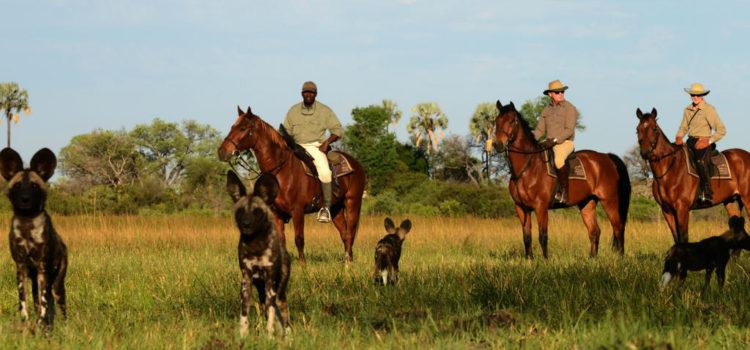
Day 2
A SAFARI ON HORSEBACK
There is no better way to savor the Okavango Delta and experience its unparalleled wildlife population than on horseback. The annual flooding of the area leaves vast swathes of the Delta inaccessible to vehicles, making horses the most natural and exciting means to explore.
The pace of riding is varied; in between fast and thrilling gallops alongside giraffe, zebra and buck, in water and on land, we quietly stalk bigger game such as buffalo and elephant and take time to indulge in some of the best bird watching in the world.
Our experienced guides are full of fascinating stories about the ever changing landscape, its trees and plants, and have an incredible ability to spot even the best camouflaged wildlife. Our horses also have finely tuned senses – keep an eye on their ears to see where animals are hiding. Once comfortable, our horses calmly drop their heads to graze, sending a signal to other animals in the area to relax and go about their normal daily routines.
In order to ensure the safest and most enjoyable horseback adventure for everyone, riders must be riding fit and confident at all paces. Days in the saddle can be long, and daytime temperatures can vary, so it is worth the effort to arrive prepared.
With nearly 50 horses of all shapes and sizes in our barn, and a choice of western or English saddles, the Macatoo team are experts at putting together the best possible riding partnerships.
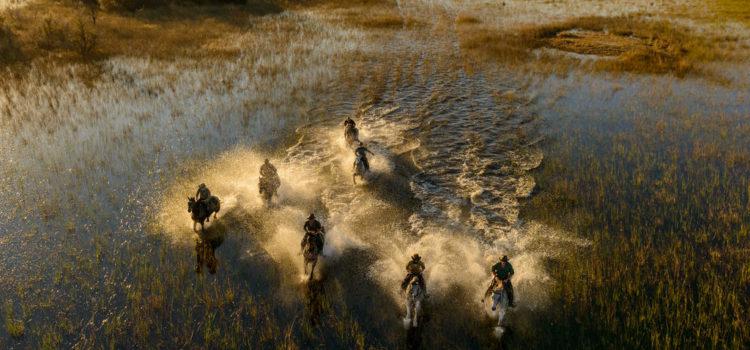
Day 3
OKAVANGO DELTA
The Delta is one of the world’s largest inland river systems and one of its most incredible wildlife sanctuaries. Perhaps most remarkable of all, is that this 15,000km2 wetland paradise is located deep within the Kalahari Desert. Each year, an influx of water from Angola, 1000km to the north, floods into the Delta to create this natural miracle, a patchwork of river channels, lagoons, islands and floodplains. The area is a magnet for birds and animals and sustains a vast variety of fauna and flora, making it the ideal safari destination at any time of the year.
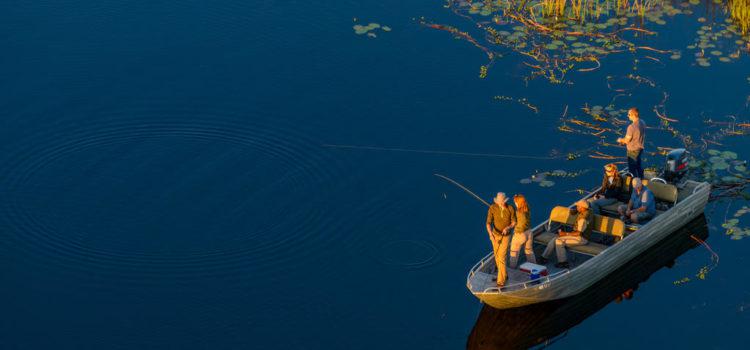
Day 4
WILDLIFE IN THE AREA
Situated in the southwest of the Delta, our concession provides us with varied and stunning scenery in which to ride. More than 380 species of bird have made their home in the Delta and large mammals are plentiful. Each species has its own habitat preference, either the seasonally inundated floodplains, channels and palm islands to the east and north and dryer, wooded Kalahari sandveld to the west and south.
The Delta boasts a massive elephant population that roams throughout the area, along with large herds of buffalo. Red lechwe, common reedbuck and hippo are most populous in the floodplains, lagoons and channels. Dryland species such as zebra, impala, blue wildebeest and giraffe are commonly found on the sandveld areas; warthog, tsessebe and kudu travel widely. Carnivore sightings occur regularly, mostly commonly are lion and spotted hyena, but leopard sightings are seen regularly and wild dog packs regularly ‘den’ near Macatoo.
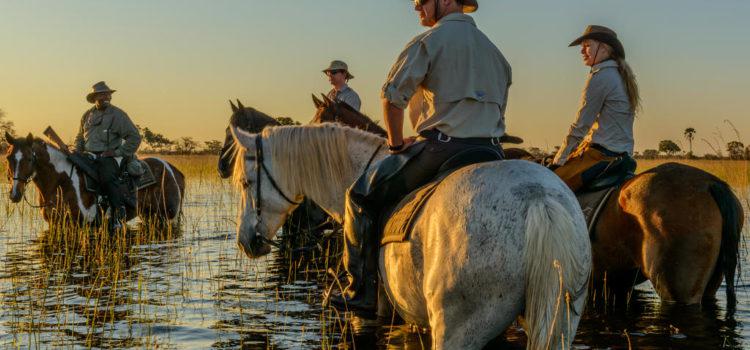
Day 5
MACATOO CAMP
Our guests are accommodated in eight large and airy tents that blend seamlessly into their natural surroundings while still providing a luxurious, but authentic bush haven in which to relax. Each tent is set on its own large, raised platform, offering panoramic views of a flood plain that can be enjoyed from the bed or deck.
A variety of sleeping configurations offer flexible accommodation to suit every need: honeymooners, families or those who are new to or nervous in the bush can relax with peace of mind and privacy.
The newly built honeymoon tent for couples celebrating any special occasion, has an additional deck for private dining as well as a raised double tub bath offering a view of the floodplain.
The ‘family and friends suite' comprises two tents, directly linked by a raised walkway and viewing deck above ground, which provides direct, easy access for parents, children and single travelers who are anxious about sleeping alone.
Between rides and activities, our swimming pool deck has a number of sun beds on which guests can read, relax and soak up the sun. As it also commands a wonderful view of the vast flood plain in front of camp, it is the perfect spot to view birds and game (don’t forget your binoculars). Elephants and giraffe often come very close to the deck and the pool doubles as a popular watering hole for passing families of baboons.
Well lit pathways link all our communal mess tent and dining deck, pool and guest accommodation. A fire burns in front of the mess tent, whatever the time of year, around which we gather to eat under the sun and stars, drink fresh coffee and fine wines and swap stories of the day.
A short drive away, and at the top of a long, sturdy ladder is our magical tree platform where we enjoy lunches, drinks and even the occasional sleepover under the African night sky.
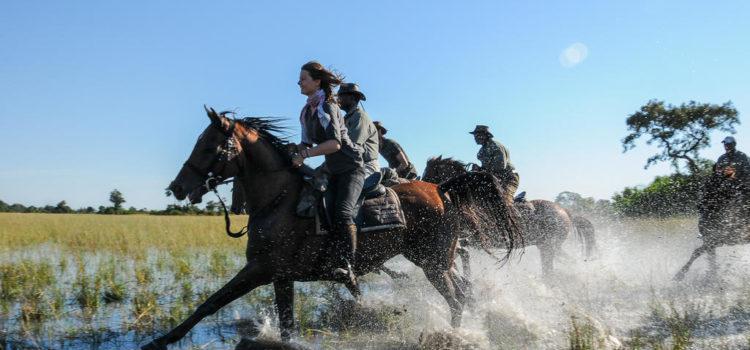
Day 6
ALL WELCOME
An African safari adventure at Macatoo does not have to involve horses and we can easily cater for non riding spouses, partners, friends and children. Indeed, many of our riding guests like to have time away from the saddle and take advantage of the wide range of other activities on offer.
Game drives offer the opportunity to track and photograph birds and big game in stunning settings. Going out in our open top safari vehicles at dawn or dusk provide the best chances of seeing wildlife on the move, hunting, feeding, drinking or roosting.
The arrival of the floods, usually around May, brings with it the unique chance to explore the Delta by water, on a motorboat, and Macatoo has its own jetty. Many guests are lucky enough to arrive in camp from the airstrip by boat.
The mokoro, a traditional dugout canoe which is navigated through the waters by a skilled poler, offers the most romantic way to view the Delta at this special time of year. The tranquility and silence of the journey enables guests to feel at one with nature and see at close quarters how the animals and birds adapt to their ever changing environment.
Fishing, from boat or land, is a hugely popular pastime with both riding and non riding guests. We have access to a wide range of beautiful fishing spots where guests cast between water lilies and wallowing hippos. The challenge is not only to get a fish to bite, but land it before it is snatched from the line by swooping fish eagles and kingfishers.
But perhaps it is only from the air that one can really appreciate the diversity and vastness of the Okavango Delta. Helicopter flights, which take off and land in front of camp, offer not only the chance to see vast herds of elephant an buffalo but a bird’s eye view of the entire ecosystem and a better understanding of this unique miracle of nature.
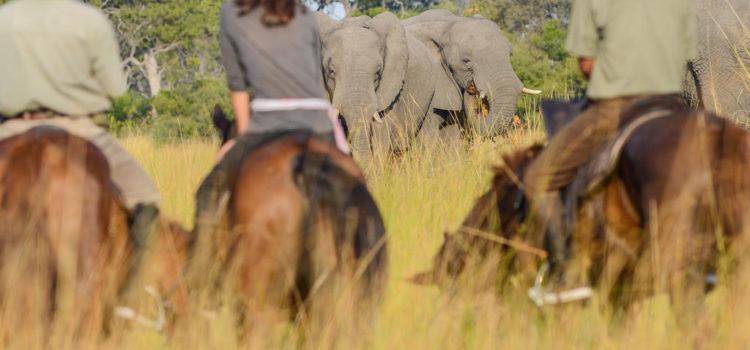
Day 7
OUR HORSES
Macatoo’s string of horses are as well looked after as their guests. Each horse – they are all boys – is recognized and appreciated for his unique ability and personality and every effort is made to match him with the most suitable rider. Our guests rotate between two or three horses during their time with us to ensure that each animal is given time to recover between rides. We have Thoroughbreds, Namibian Hanoverians, Percherons and Kalahari Arab crossbreeds ranging between 14hh and 18hh (140-180cm).
With nearly 50 horses in the barn, all schooled and well mannered, we are able to ensure every one is fully fit and rested with downtime out in the paddocks to give our guests the best possible ride.
One of the most popular spectacles at Macatoo is the sight of the resting horses galloping home from their mobile paddocks each afternoon.
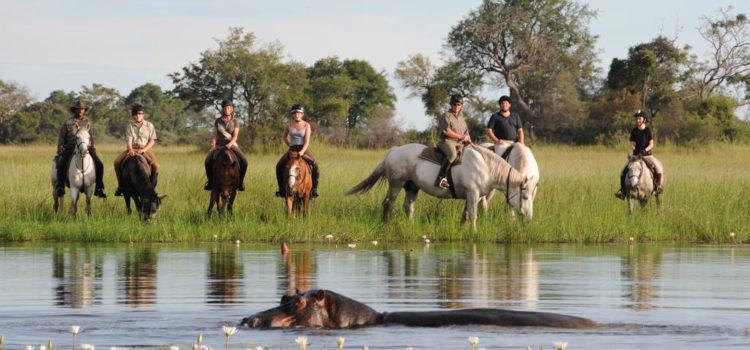
Day 8
RIDING POLICY
Be prepared to spend up to six hours a day in the saddle. You will need to feel confident about keeping up with the group, capable of riding at all paces, rising to the trot and controlling your horse at the canter. You may be required to gallop out of trouble, so regrettably we cannot take novice riders. Riders need to be over 12 years old, be riding fit, and weigh no more than 95kgs (210lbs or 15 stone). Riders who are over the weight limit would need to make special arrangements for this with our reservations team and need to be advanced riders. We take a maximum of eight people in each riding group to ensure the best possible standards of safety and enjoyment. There is a choice of English and Western style trail saddles, each with their own water bottle.
You must be able to ride to one of the following competence levels:
Experienced: Confident at all paces on almost any horse, competes or hunts seriously.
Intermediate: Ridden for a number of years. Able to control fit thoroughbreds at all paces.
Competent: Able to control a sensible/quiet horse at all paces and feels confident on such a horse. Balanced in the saddle and able to rise/post to the trot.
If you are not riding regularly we strongly recommend that you get in practice before joining us on safari. It will be at the discretion of the company whether less experienced riders will be permitted to ride, taking into consideration their safety and enjoyment and that of the group as a whole. We reserve the right to prevent any client from riding if we feel they do not fulfill the minimum competence level detailed above.
Many insurance companies will only insure you when wearing a hard hat or safety helmet whilst in the saddle. It is your responsibility to provide your own properly fitted hard hat or safety helmet. We cannot accept any liability whatsoever for head injuries sustained as a result of ignoring this advice. You must be insured to ride with us – please ensure your policy covers you for horse riding and includes medical evacuation cover.
You must be fully aware and understand that there are risks involved when around horses, in riding generally and in visiting and staying in remote wilderness areas in Africa due to the presence of wild and potentially dangerous animals. For these reasons you will be required to sign an indemnity form before you ride on our safaris confirming that you do so entirely at your own risk and that you have adequate insurance for all eventualities.
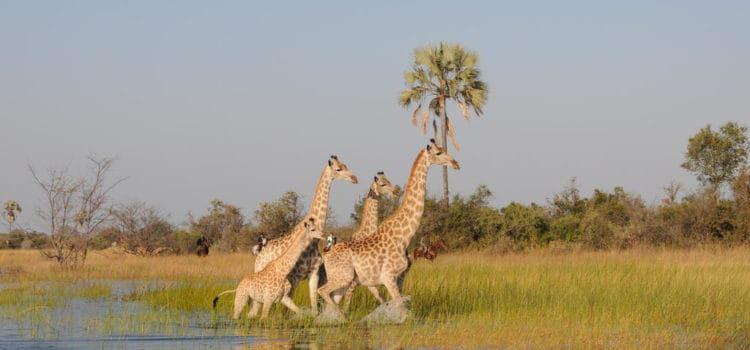
Day 9
BEST TIME TO VISIT
The best time to come to Macatoo – is when you can get away!
We are always being asked “When is the best time to come?” As this is such a complicated issue with many variables such as weather, water levels and game we have listed below some guidelines to help you decide what suits you best.
January / February
Weather: Warm / hot during the day with morning rides in a breeze – pleasantly warm at night. Small possibility of rain. Bush is green and lush – grass tall and green.
Temperature: Day: temps can reach 35°-45°C in the middle of the day Night: 10°-20°C
Water: Rain pools in the Mopane forests and on the open plains – but floodwater unlikely at this time.
Game: Cats around and plains game such as zebra, wildebeest, impala and kudu. Nomadic bull elephants and birds in breeding plumage.
Clothing: Lightweight riding gear, a raincoat and swimwear.
March / April
Weather: Warm / hot during the day – pleasantly warm at night. Small possibility of rain. Bush is green and lush – grass tall and green.
Temperature: Day: 25°-35°C Night: 10°-20°C
Water: Plenty of rain pools left over from the rainy season – but the floodwater is unlikely to be within riding distance of the camp.
Game: Because of the rain and waterholes, the game is dispersed all over the country – so not concentrated in herds yet. Possible still to see the plains game: zebra, wildebeest, impala etc as well as elephant, maybe buffalo and cats.
Clothing: Lightweight riding gear, a raincoat and swimwear.
May
Weather: Cooler at night, but still pleasantly warm during the day. Unlikely to rain. Bush still green but grass getting shorter.
Temperature: Day: 20°-30°C Night: 5°-10°C
Water: The Okavango annual flood waters normally arrive in May or June – so are within riding distance for a couple of weeks before they actually reach camp. The flood waters bring long shallow water canters on the floodplains and deeper channels to cross. As water levels rise, motorboat replaces vehicle game drives and mekoros are also in use into November.
Game: When the water arrives initially the bird life is great as they feed off the shallow water areas. Game comes to drink from the water, with the buffalo and lechwe moving in as the water levels increase. However, there is a lot of water – so much of the game is still dispersed.
Clothing: A splash proof jacket, a fleece/sweater for evenings and swimwear.
June / July / August
Weather: This is our winter and can be chilly / cold in the early morning and evenings but warm in the middle of the day. Bush getting drier except around the edges of the islands where the green shoots start to come through.
Temperature: Day: 20°-25°C Night: 3°-5°C
Water: The water is at its highest levels, so plenty around to ride through and go boating on either in the motor boat or mokoro (canoe).
Game: Large herds of lechwe forming in the wetlands and perhaps hippo and crocodile in the area. Good potential for buffalo sightings with impala, tsessebe, kudu etc moving inland on islands.
Clothing: Splash proof jacket, a warm fleece/sweater for evenings.
September / October
Weather: Winter is over and it gets progressively hotter building up to the first rains, which clear the hazy days and the skies are big and beautiful. Trees come into flower and then leaves go green and fruits grow. Evenings are warm and the plunge pool gets a lot of use! Bush is dry and grass short.
Temperature: Day: 30-45°C Night: 15°-25°C
Water: The floodwater normally stays around the camp area until October – but this, of course, depends on how big the flood was to start with. As the floodplain water recedes, drinking pools of water remain – hopefully until the next rains come!
Game: The game now tends to concentrate as the water sources lessen – often big herds of buffalo, elephant and with shorter grass more plains game can be seen. More likely to see wild dog as well as the cats who favor dry savannah such as cheetah. Young giraffe and lechwe; hyenas more evident cooling off in the pools.
Clothing: Lightweight riding gear, a fleece/sweater and swimwear.
November / December
Weather: The rainy season is any time from November – but impossible to say exactly when and how much. Normally the rain comes for an hour or so every day and then often goes away for a week or more before it rains again. It is warm to sticky hot before the rain and cooler after each rain. Bush turns green with the rains and many of the trees and flowers come into bloom while the sunsets become increasingly dramatic.
Temperature: Day: 30°-40°C Night: 15°-20°C
Water: Depending on the flood level, there will be some water around with the rain topping up the pools.
Game: Very good until the first rain when it disperses again – the young antelope are born at this time and are very entertaining to watch.
Clothing: Lightweight riding gear, a raincoat and swimwear.
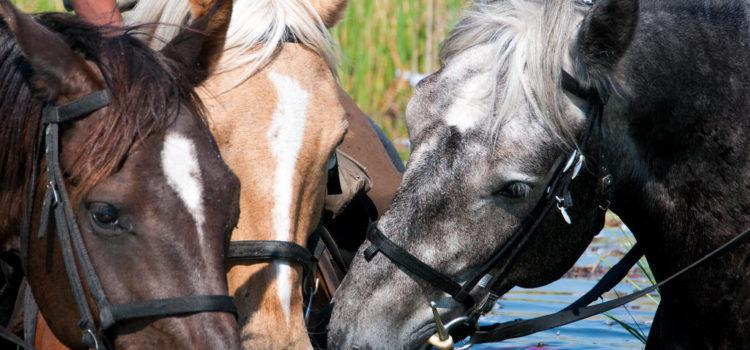
Day 10
WHAT TO BRING
Luggage is strictly limited to 20kgs per person, including hand luggage, carried in soft bags on the light aircraft into the Delta. Additional bags can be stored, by arrangement, at African Horseback Safaris’ office in Maun.
We recommend that you bring:
A light weight riding hat
A shade hat with strap
Two pairs of lightweight riding shoes
Sunglasses on string, riding gloves and bandana
Bush color riding clothes (not white):
Jodhpurs or long trousers and chaps (2 pairs)
Long sleeved cotton shirts
Jersey, fleece or multi pocketed waistcoat
Light weight waterproof windbreaker jacket
4 x sets of socks and underwear (we recommend unpadded cycling shorts for men)
Shorts, T shirts, sarong, swimwear and sandals
Sun block, lip salve, insect repellent
Torch and binoculars
Waterproof camera
All clothing should be neutral colored to blend in with the bush (shades of khaki, brown, beige or green) and light weight cottons are advisable. Please take into consideration the time of year when you are traveling before making your final packing decisions. For further information, please see ‘Best time to visit’ which provides more information about seasonal changes and temperatures. Many guests choose to wear their riding clothes and boots and carry wash bags in their hand luggage, in case bags are delayed or go astray on international flights.
Macatoo provides a complimentary laundry service, although for hygiene reasons we do not wash underwear. Washing powder is provided in tents for this purpose. Towels and other amenities are provided.
A basic first aid kit is available in camp but please make sure to bring any prescription medication with you. Please consult your doctor regarding anti malarial advice and inoculations.
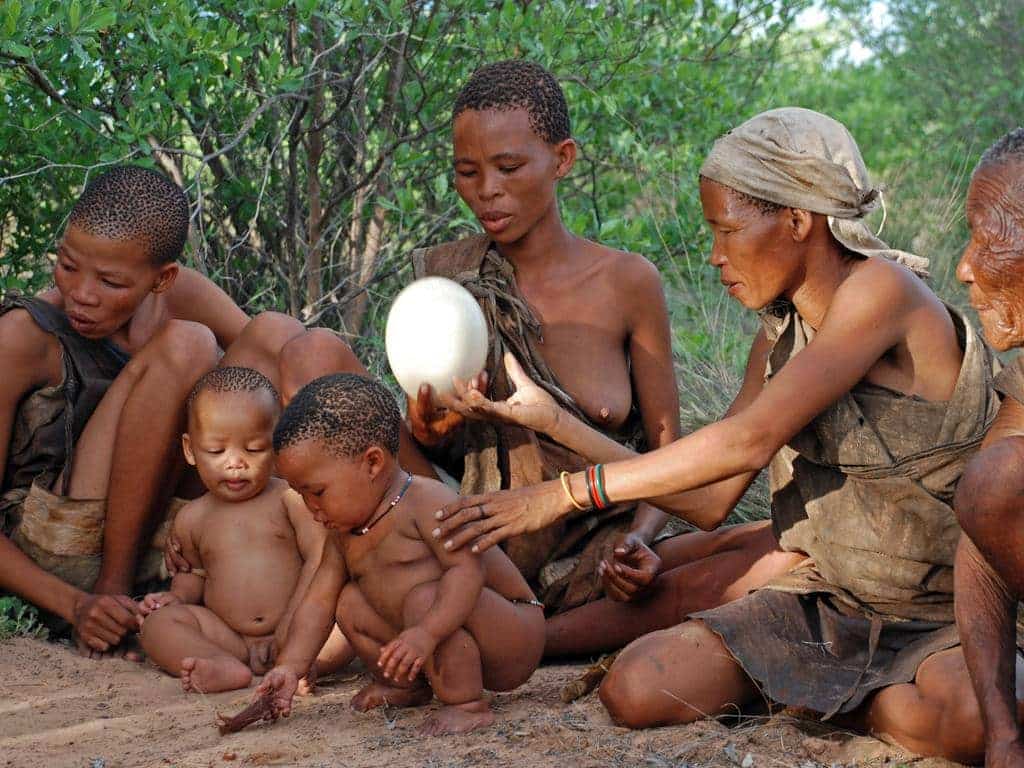
Day 11
After breakfast you will be taken out of the Delta via chartered flight to Maun, Botswana. There you will again connect with a commercial flight back to Johannesburg where you will then take your evening flight to the US.
Included / Not Included
Not Included
Meals and drinks not specified as included (above)
Activities not specified as included
Any items of a personal nature
All gratuities
Travel Insurance

